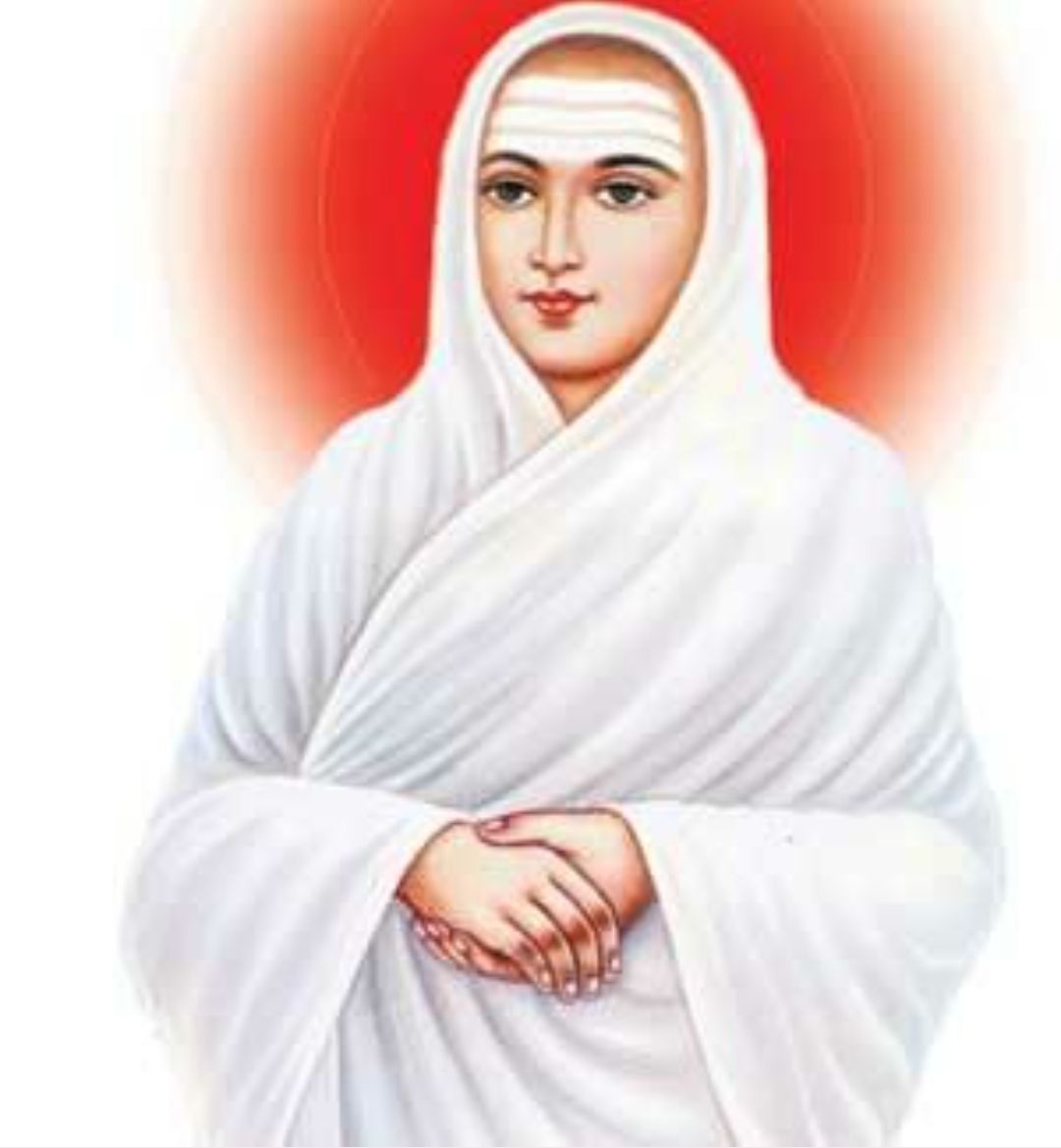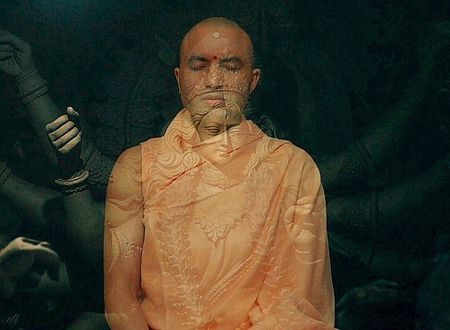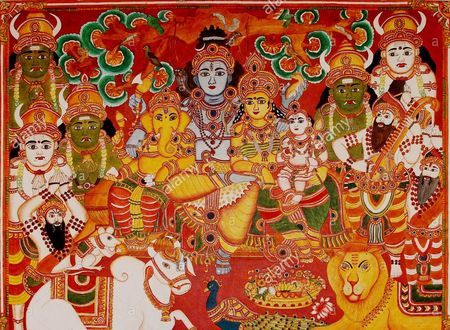This poem is a testimony to the fact that right from the atom to the ant to the brahmaanda to the hiranyagatbha to all the celestial worlds and beyond as well is permeated by the ‘only one’ – ‘ekam’ which is the witness conciousness .
Song no :2118
பொங்குபல சமயமெனும் நதிக ளெல்லாம் 1
புகுந்துகலந் திடநிறைவாய்ப் பொங்கி ஓங்கும்
கங்குகரை காணாத கடலே எங்கும் 2
கண்ணாகக் காண்கின்ற கதியே அன்பர்
தங்கநிழல் பரப்பிமயல் சோடை யெல்லாந் 3
தணிக்கின்ற தருவேபூந் தடமே ஞானச்
செங்குமுத மலரவரு மதியே எல்லாம் 4
செய்யவல்ல கடவுளே தேவ தேவே 5
Line 1&2 : just like various rivers arise intersect, intertwine and finally merge in one giant ocean. You are that one shoreless unbounded giant grace into which various religions,faiths,sects intersects, intertwines and finally merge into.
Line 3: you are that which is the everseeing witness everywhere
Line 4: your grace is that which provides golden shelter for the weary devotee which wards off all the negativities and vices
Line 5: In the ever colorful garden of the mind, your grace is the divine nectar within the flower
Oh! Thy grace! Thy grace! You are capable of anything and everything!
Line 3 is the one which is very unique. Why so? Is it mentioned elsewhere and by others as well? Yes indeed!
1. Om Swami in the zen retreat (2015) on day 2 or 3 said before beginning the discourse, “I am just the witness seeing everything, it is Mother Divine who is sitting in front of you and conducting the discourse through me”.
2. In Purusha Suktam there’s a verse which says that the Purusha has infinite eyes, hands and feet everywhere.
3. The Tree of Jiva and Atman appears in the Vedic scriptures concerning the soul. The Rig Veda samhita 1.164. 20-22, Mundaka Upanishad 3.1. 1-2, and Svetasvatara Upanishad 4.6-7, speak of two birds, one perched on the branch of the tree, which signifies the body, and eating its fruit, the other merely watching it which is the ever witnessing jivatman.
4. Saint Ramana who was in deep contemplation and totally unaware of the sense worlds describes his experience, ” I was totally consumed by the bliss emanating from the one seated in the heart that I kept my mindful gaze on it and didn’t feel the need to engage with the senses at all”.
Saint Vallalar’s composition is in Tamil Language but the experince he expressed in his songs about the Divine is universal, Which signifies that language, gender, caste, creed, race, religions, faiths, sects, difference of opinions, truths – everything merges within the the one ultimate witness conciousness which is termed as satchitananda parabrahman- The universal witness.









Comments & Discussion
5 COMMENTS
Please login to read members' comments and participate in the discussion.